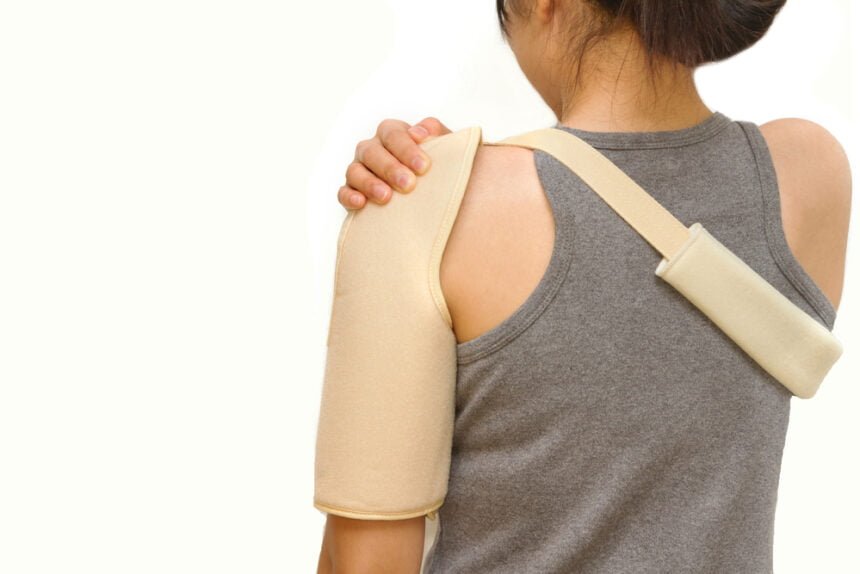Anyone who has ever struggled with shoulder pain or injury knows how it can dramatically affect their daily life and overall well-being. Enter the shoulder brace — a seemingly simple device designed to provide support, alleviate pain, and promote healing in this important, yet vulnerable, area of the body. Often considered a mainstay in the treatment and management of shoulder injuries, these braces can make a significant difference to one’s health. In this blog post, we will delve deep into the world of shoulder stabilizers, exploring their potential impacts on health and well-being.
Common Shoulder Injuries and Conditions
The shoulder, due to its vast range of motion, often falls victim to a variety of injuries and conditions. Rotator cuff tears, for example, occur when the muscles or tendons surrounding the shoulder joint are damaged, leading to pain and weakness. Dislocations, another frequent affliction, happen when the top of the arm bone is forced out of the shoulder socket, often causing intense discomfort and instability.
Chronic conditions are also common in the shoulder region. One such condition is a frozen shoulder, characterized by stiffness and a restricted range of motion. Another prevalent condition is osteoarthritis, a degeneration of joint cartilage and the underlying bone, typically resulting in pain and impaired function. Some of these injuries are very common after car accidents.
Regardless of the type of injury or condition, the effect on an individual’s health and well-being is significant. Coping with constant pain, dealing with restricted mobility, and adjusting to an impaired ability to carry out common tasks are all factors that can diminish a person’s quality of life. Consequently, finding effective treatment and pain management strategies become crucial for those experiencing these shoulder-related problems.
Role of Shoulder Brace in Dealing with Shoulder Injuries and Conditions
From a medical standpoint, the use of shoulder support is widely recognized as an effective method to manage and treat shoulder injuries and conditions. One primary reason is the support they provide to the injured area, resulting in diminished pain and a more comfortable healing process. Furthermore, these devices aid in restricting movements that potentially aggravate the condition, affording the shoulder a conducive environment to recuperate.
Rehabilitation involving a brace can significantly influence the trajectory of recovery. By stabilizing the joint, promoting correct posture, and allowing controlled movement, these braces aid in gradually restoring strength and mobility. They also often play a critical role in physical therapy sessions where patients execute specific exercises under guided supervision.
Impact of Shoulder Support on Physical Health
Utilizing a shoulder stabilizer manifests numerous benefits that positively influence physical health.
Pain Management
For one, this brace plays a substantial role in managing discomfort. By providing support and stability to the affected area, it can bring significant relief from persistent pain often associated with shoulder ailments.
Enhancing Mobility and Function
They do so by allowing controlled movements that prevent further injury while still enabling vital exercises for recovery. Gradually, with consistent use, these devices can facilitate an improved range of motion, strength, and functionality of the shoulder.
Recovery and Rehabilitation from Injuries
In terms of assisting with restorative processes, shoulder immobilizer is indispensable. They contribute to mending injuries by restricting harmful motions, prominent during the initial stages of recovery. As healing progresses, they support physiotherapy efforts by permitting gradual and safe reintroduction of movement.
Psychological Effects of Using a Shoulder Immobilizer
The benefits of using a brace extend beyond physical health, greatly influencing mental welfare. One significant advantage is alleviating pain and the subsequent potential to bolster one’s mood, reducing associated stress, and enhancing a sense of well-being. Further, the gradual return of mobility can reinforce independence, positively sparking self-esteem and happiness.
By providing the necessary support and stability to the injured shoulder, braces can also foster a sense of confidence. Knowing that the shoulder is protected can encourage individuals to engage more confidently in daily activities, thus aiding their overall adaptability and resilience.
Another key psychological advantage is the role shoulder slings play in mitigating anxieties related to potential reinjury. This kind of fear can often impede recovery and limit participation in various activities. However, the protective barrier that braces offer can instil greater trust in the recovery process, assuaging these concerns and promoting more proactive involvement in rehabilitation measures.
Perspectives from Health Professionals on the Effectiveness of a Shoulder Stabilizer
When it comes to the management and rehabilitation of shoulder injuries, health professionals often advocate for the use of shoulder support. Not only do these braces provide immediate support to the injured region, but they also help to create an optimal environment for healing. They do this by limiting movements that can lead to further damage, while still allowing a suitable range of motion for recovery.
In addition, a shoulder stability brace can play a crucial role in supporting physiotherapy regimens. By ensuring that movements are completed in a controlled and safe manner, these devices can help patients gradually regain strength and flexibility without risking re-injury.
Potential Downsides or Limitations of Shoulder Brace Use
Despite their considerable benefits, it is prudent to be aware of the potential downsides associated with the use of these devices. In terms of physical side effects, improper usage or prolonged wear without appropriate breaks can sometimes lead to skin irritation or discomfort. Moreover, an incorrectly fitted brace can potentially exacerbate the initial injury.
From a psychological perspective, there’s a possibility of developing an over-reliance on the brace. While these devices indeed offer essential support, they should not be seen as a complete replacement for strength-building exercises and physiotherapy. Relying too heavily on a brace can deter progress in recovery and even lead to muscle weakness over time.
Furthermore, there are instances where a brace may not add value or even be necessary. For instance, minor injuries that do not affect mobility might not need the aid of a brace. Similarly, in the case of some chronic pains, using a brace might not have a significant influence on pain management, making their use redundant.
Conclusion:
In conclusion, shoulder immobilizer’s substantial role in health and well-being cannot be understated. While encouraging the judicious use of these devices for various shoulder ailments, it’s critical to balance their benefits with potential limitations, applying them strategically based on personalized situations.









